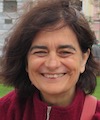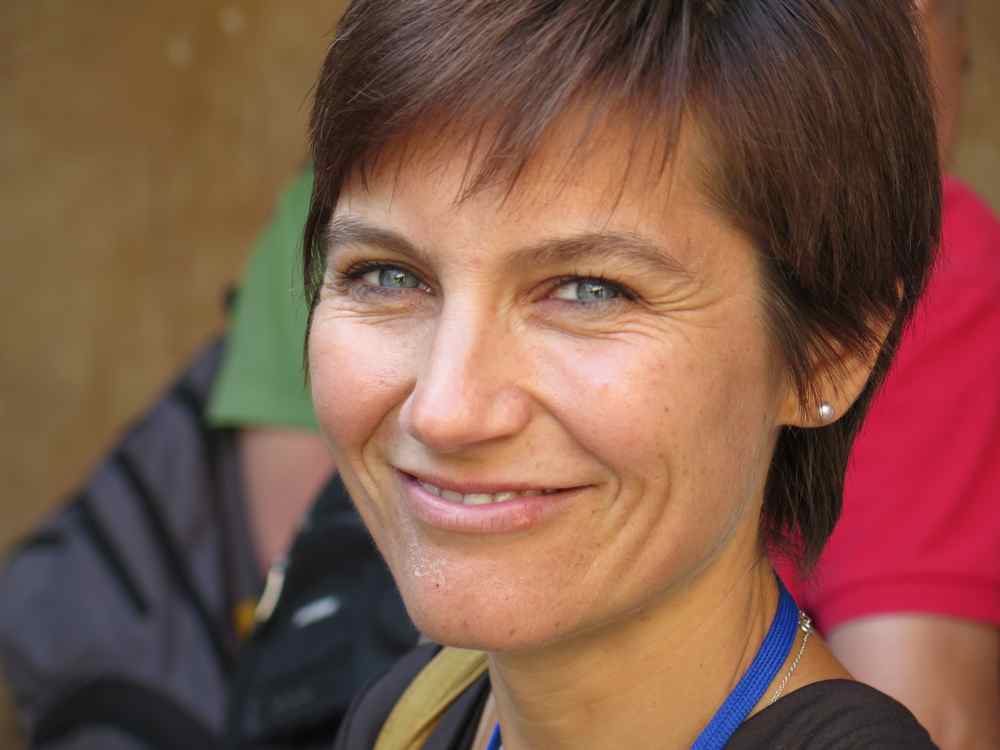Studying at the University of Verona
Here you can find information on the organisational aspects of the Programme, lecture timetables, learning activities and useful contact details for your time at the University, from enrolment to graduation.
Academic calendar
The academic calendar shows the deadlines and scheduled events that are relevant to students, teaching and technical-administrative staff of the University. Public holidays and University closures are also indicated. The academic year normally begins on 1 October each year and ends on 30 September of the following year.
Course calendar
The Academic Calendar sets out the degree programme lecture and exam timetables, as well as the relevant university closure dates..
| Period | From | To |
|---|---|---|
| Primo semestre | Oct 4, 2021 | Jan 28, 2022 |
| Secondo semestre | Mar 7, 2022 | Jun 10, 2022 |
| Session | From | To |
|---|---|---|
| Sessione invernale d'esame | Jan 31, 2022 | Mar 4, 2022 |
| Sessione estiva d'esame | Jun 13, 2022 | Jul 29, 2022 |
| Sessione autunnale d'esame | Sep 1, 2022 | Sep 30, 2022 |
| Session | From | To |
|---|---|---|
| Sessione estiva di laurea | Jul 21, 2022 | Jul 21, 2022 |
| Sessione autunnale di laurea | Oct 13, 2022 | Oct 13, 2022 |
| Sessione autunnale di laurea - dicembre | Dec 7, 2022 | Dec 7, 2022 |
| Sessione invernale | Mar 16, 2023 | Mar 16, 2023 |
| Period | From | To |
|---|---|---|
| Festa di Tutti i Santi | Nov 1, 2021 | Nov 1, 2021 |
| Festa dell'Immacolata Concezione | Dec 8, 2021 | Dec 8, 2021 |
| Festività natalizie | Dec 24, 2021 | Jan 2, 2022 |
| VACANZE DI PASQUA | Apr 15, 2022 | Apr 19, 2022 |
| FESTA DEL LAVORO | May 1, 2022 | May 1, 2022 |
| Festa di San Zeno - S. Patrono di Verona | May 21, 2022 | May 21, 2022 |
| Festa della Repubblica | Jun 2, 2022 | Jun 2, 2022 |
| Chiusura estiva | Aug 15, 2022 | Aug 20, 2022 |
Exam calendar
Exam dates and rounds are managed by the relevant Science and Engineering Teaching and Student Services Unit.
To view all the exam sessions available, please use the Exam dashboard on ESSE3.
If you forgot your login details or have problems logging in, please contact the relevant IT HelpDesk, or check the login details recovery web page.
Should you have any doubts or questions, please check the Enrollment FAQs
Academic staff
 michele.ginesi@univr.it
michele.ginesi@univr.it
 rosanna.laking@univr.it
rosanna.laking@univr.it
 alessia.mandini@univr.it
alessia.mandini@univr.it
 daniela.pianezzi@univr.it
daniela.pianezzi@univr.it
 silvia.ruggieri@univr.it
silvia.ruggieri@univr.it
 claudio.tomazzoli@univr.it
claudio.tomazzoli@univr.it
 franco.zivcovich@univr.it
franco.zivcovich@univr.it
 simone.zuccher@univr.it
simone.zuccher@univr.it
Study Plan
The Study Plan includes all modules, teaching and learning activities that each student will need to undertake during their time at the University.
Please select your Study Plan based on your enrollment year.
1° Year
| Modules | Credits | TAF | SSD |
|---|
2° Year activated in the A.Y. 2022/2023
| Modules | Credits | TAF | SSD |
|---|
3° Year activated in the A.Y. 2023/2024
| Modules | Credits | TAF | SSD |
|---|
| Modules | Credits | TAF | SSD |
|---|
| Modules | Credits | TAF | SSD |
|---|
| Modules | Credits | TAF | SSD |
|---|
| Modules | Credits | TAF | SSD |
|---|
Legend | Type of training activity (TTA)
TAF (Type of Educational Activity) All courses and activities are classified into different types of educational activities, indicated by a letter.
Operations Research (2023/2024)
Teaching code
4S00001
Teacher
Coordinator
Credits
6
Language
Italian
Scientific Disciplinary Sector (SSD)
MAT/09 - OPERATIONS RESEARCH
Period
Semester 2 dal Mar 4, 2024 al Jun 14, 2024.
Courses Single
Authorized
Learning objectives
The student will encounter in concrete the concepts of: problems, models, formulations of operations research, but also of instances, algorithms, reductions and mappings among problems of the computer science field. The course will propose some models of operations research, at least the following: linear programming (LP), integer linear programming (ILP), max-flows and min-cuts, bipartite matchings and node covers, minimum spanning trees, shortest paths, Eulerian paths, and some models resorting on dynamic programming among which some knapsack variants. For all these models/problems, except PLI, the student will learn the solving algorithms, the properties on which they hinge, and how to conduct their execution. However, besides and beyond this, the course aims at building a good and active relationship, practice, and acquaintance, with general mathematical methodologies and techniques (more typical of discrete math and for this reason not yet fully assimilated from our students) and some basic underpinnings of computer science. In particular, we insist on the dialog with problems and with the art/technique of conjecturing, no occasion is lost to spotlight where invariants and monovariants play a role in proofs, algorithms and data structures. We build up confidence with mathematical induction as an active tool for problem solving, and introducing the dialects of induction most voted to efficiency (divide et impera, recursion with memoization, dynamic programming). Some basic principles of informatics are underlined, like coding, algorithms, data structures, recursion as a counterpart of mathematical induction and of computability. (In some editions of the course first scratch introductions to numerability and computability have been offered). Coming to efficiency, our central perspective, the use of asymptotic notation is justified and adopted, the classes P, NP, coNP are introduced, and the concepts of good characterizations, good conjectures and good theorems are illustrated in length and complexity theory is advertised as a lively source of new methodologies in the art of facing problems and enquiry their intrinsic structural properties. Several aspects of the role and importance of the art of reducing one problem to another are discussed and clarified. The life cycle of a good conjecture, the workflow linking good conjectures and algorithms, the production and interpretation of counterexamples as a means of dialog with the problem, and the possible use of them in obtaining NP-completeness proofs, are all discussed, investigated and exemplified in action. Explicit emphasis is constantly given to the role and use of certificates. Meanwhile these transversal and high competences of methodological interest and imprinting are delivered, the students is asked to learn and develop several concrete procedural competences, in particular within LP, and in an algorithmic treatment of graph theory, introduced as a versatile model and an intuitive and expressive language for the formulation of problems. For a complete and detailed list of all these procedural competences delivered and requested, see the past exams and corrections over the various editions of the course. The notions from computational complexity introduced in the course, and the attention to the languages of the certificates, will lead the student to recognize with more awareness the structure of a sound proof. Dealing with instances, problems, models, both from the perspective of algorithms and of models and formulations, will enforce the attitude and competence in casting simple problems from the applications into mathematical models. The knowledge of the paradigmatic results of linear programming theory (duality, complementary slackness, economic interpretation, sensitivity analysis) will provide the student with important tools in obtaining non-trivial insights on the practical problem from the model.
Prerequisites and basic notions
rudiments of analysis (numbers, sets, functions), algebra and calculus (equations and unknowns), analytic geometry (Cartesian coordinates,
equations for the line or the plane), and linear algebra (vectors and matrices)
Program
Operations Research offers quantitative methods and models for the optimal management of resources, and optimization of profits, services, strategies, procedures.
This course of Operations Research gets to Mathematical Programming moving from Algorithmics and Computational Complexity.
After revisiting mathematical induction, recursion, divide et impera, with a curiosity driven problem solving approach, we insist on dynamic programming thinking which gets then exemplified in a few classical models of Operations Research and Computational Biology.
With emphasis on method and techniques, we get involved in formulating, encoding and modeling problems, conjecturing about them, reducing one to the other,
and well characterizing them.
The course offers an in-depth introduction to linear programming.
Following the historical path, we introduce graphs as for modeling,
and explore the basic fundamental results in combinatorial optimization and graph theory.
LIST OF TOPICS:
1. Basic Notions
problems
models
algorithms
complexity
2. Introduction to Algorithms and Complexity
analysis of a few algorithms
design techniques (recursion, divide et impera, recursion with memoization, dynamic programming, greedy)
complexity theory (P, NP, co-NP, good characterizations, good conjectures, examples of NP-completeness proofs)
3. Combinatorial Optimization Models
knapsack problems
Problems on sequences
Problems on DAGs
4. Introduction to Graph Theory
graphs and digraphs as models
a few good characterizations (bipartite, Eulerian, acyclic, planar graphs)
a few NP-hard models (Hamiltonian cycles, cliques, colorability)
shortest paths
minimum spanning trees
maximum flows
bipartite matchings
5. Linear Programming (LP)
the LP and the ILP models (definition, motivations, complexity, role)
geometric method and view (feasibility space,
pivot, duality, dual variables, degeneracy, complementary slackness)
standard and canonical form
simplex method
duality theory
complementary slackness
economic interpretation of the dual variables
sensitivity analysis
BOOKS, NOTES AND OTHER DIDACTIC MATERIALS AND RESOURCES:
At the following page you find a list of available materials (books, notes, videos) about topics covered within the course:
http://profs.sci.univr.it/~rrizzi/classes/RO/materiali
From Levanto you can access to the .pdf of some reference book.
If you find out further effective material help us enlarging this list.
Bibliography
Didactic methods
We focus more on the acquisition of active skills than on a wealth of theoretic knowledge.
The active and collaborative participation of the students is welcome and precious.
Learning assessment procedures
At the end of the course, a written exam with various types of exercises and questions on the more procedural competences acquired during the course. You can add (in full or in part) to the mark acquired at the exam by conducting projects aiming at improving aspects and/or materials of the course in a broad sense.
The exam is the very same regardless on whether you have attended or not the course. The archives of the past exams, the relative corrections, and the videos of the classes, all can help overcoming the difficulties of the non-attending student. Despite these resources, the more methodological messages of the course remain difficult to acquire without active participation and attendance to the lessons, and this can penalize the student, also at the exam.
Evaluation criteria
With your help, we seek and build transparency on the correction procedures and evaluation mechanisms. From the very start, we underline a peculiarity of the Operations Research course, the only one in discrete mathematics at the bachelor:
in evaluating the answers we attach great importance to the quality of the certificates produced.
In fact, the approach and spirit with which you should approach the course and the exam, and what to deliver and elaborate in your answers to the exercises, is actually related to some deep methodological messages that we decided to place at the core of the course. The more the student adopts and interprets these approaches, the more enriching the course and the easier the exam. This will be important to get the most from the course and perform well during the exam.
Criteria for the composition of the final grade
We do not give any weight to wrong answers (really, we are not scandalized by anything). Only correct answers count for us.
We add up the points collected through these, and this sum is mapped into the vote via a function that we guarantee to be monotonic continuous. We reserve the right to redesign this function after the conclusion of the task (to make the necessary adjustments) but typically it is the sum of the points shown in the test text.
The mark produced remains valid until another submission at the end of a subsequent exam session.
Exam language
Italian. But, under request, we will prepare also an English test text.
Type D and Type F activities
Le attività formative di tipologia D sono a scelta dello studente, quelle di tipologia F sono ulteriori conoscenze utili all’inserimento nel mondo del lavoro (tirocini, competenze trasversali, project works, ecc.). In base al Regolamento Didattico del Corso, alcune attività possono essere scelte e inserite autonomamente a libretto, altre devono essere approvate da apposita commissione per verificarne la coerenza con il piano di studio. Le attività formative di tipologia D o F possono essere ricoperte dalle seguenti attività.
1. Insegnamenti impartiti presso l'Università di Verona
Comprendono gli insegnamenti sotto riportati e/o nel Catalogo degli insegnamenti (che può essere filtrato anche per lingua di erogazione tramite la Ricerca avanzata).
Modalità di inserimento a libretto: se l'insegnamento è compreso tra quelli sottoelencati, lo studente può inserirlo autonomamente durante il periodo in cui il piano di studi è aperto; in caso contrario, lo studente deve fare richiesta alla Segreteria, inviando a carriere.scienze@ateneo.univr.it il modulo nel periodo indicato.
2. Attestato o equipollenza linguistica CLA
Oltre a quelle richieste dal piano di studi, per gli immatricolati dall'A.A. 2021/2022 vengono riconosciute:
- Lingua inglese: vengono riconosciuti 3 CFU per ogni livello di competenza superiore a quello richiesto dal corso di studio (se non già riconosciuto nel ciclo di studi precedente).
- Altre lingue e italiano per stranieri: vengono riconosciuti 3 CFU per ogni livello di competenza a partire da A2 (se non già riconosciuto nel ciclo di studi precedente).
Tali cfu saranno riconosciuti, fino ad un massimo di 6 cfu complessivi, di tipologia F se il piano didattico lo consente, oppure di tipologia D. Ulteriori crediti a scelta per conoscenze linguistiche potranno essere riconosciuti solo se coerenti con il progetto formativo dello studente e se adeguatamente motivati.
Gli immatricolati fino all'A.A. 2020/2021 devono consultare le informazioni che si trovano qui.
Modalità di inserimento a libretto: richiedere l’attestato o l'equipollenza al CLA e inviarlo alla Segreteria Studenti - Carriere per l’inserimento dell’esame in carriera, tramite mail: carriere.scienze@ateneo.univr.it
3. Competenze trasversali
Scopri i percorsi formativi promossi dal TALC - Teaching and learning center dell'Ateneo, destinati agli studenti regolarmente iscritti all'anno accademico di erogazione del corso https://talc.univr.it/it/competenze-trasversali
Modalità di inserimento a libretto: non è previsto l'inserimento dell'insegnamento nel piano di studi. Solo in seguito all'ottenimento dell'Open Badge verranno automaticamente convalidati i CFU a libretto. La registrazione dei CFU in carriera non è istantanea, ma ci saranno da attendere dei tempi tecnici.
4. Periodo di stage/tirocinio
Oltre ai CFU previsti dal piano di studi (verificare attentamente quanto indicato sul Regolamento Didattico): qui informazioni su come attivare lo stage.
Insegnamenti e altre attività che si possono inserire autonomamente a libretto
Documents and news
-
 Modifiche al piano di studi (.doc)
(octet-stream, it, 1314 KB, 30/06/21)
Modifiche al piano di studi (.doc)
(octet-stream, it, 1314 KB, 30/06/21)
| years | Modules | TAF | Teacher |
|---|---|---|---|
| 1° 2° 3° | Algorithms | D |
Roberto Segala
(Coordinator)
|
| 1° 2° 3° | Basis of general chemistry | D |
Chiara Nardon
|
| 1° 2° 3° | Genetics | D |
Massimo Delledonne
(Coordinator)
|
| years | Modules | TAF | Teacher |
|---|---|---|---|
| 1° 2° 3° | Algorithms | D |
Roberto Segala
(Coordinator)
|
| 1° 2° 3° | LaTeX Language | D |
Enrico Gregorio
(Coordinator)
|
| 1° 2° 3° | Organization Studies | D |
Serena Cubico
(Coordinator)
|
| 1° 2° 3° | History and Didactics of Geology | D |
Guido Gonzato
(Coordinator)
|
| years | Modules | TAF | Teacher | |
|---|---|---|---|---|
| 1° | Subject requirements: mathematics | D |
Franco Zivcovich
|
|
| 1° 2° 3° | ECMI modelling week | F | Not yet assigned | |
| 1° 2° 3° | ESA Summer of code in space (SOCIS) | F | Not yet assigned | |
| 1° 2° 3° | Google summer of code (GSOC) | F | Not yet assigned | |
| 1° 2° 3° | Python programming language | D |
Giulio Mazzi
(Coordinator)
|
|
Career prospects
Module/Programme news
News for students
There you will find information, resources and services useful during your time at the University (Student’s exam record, your study plan on ESSE3, Distance Learning courses, university email account, office forms, administrative procedures, etc.). You can log into MyUnivr with your GIA login details: only in this way will you be able to receive notification of all the notices from your teachers and your secretariat via email and soon also via the Univr app.
Graduation
Documents
| Title | Info File |
|---|---|
|
|
pdf, it, 31 KB, 29/07/21 |
|
|
pdf, it, 31 KB, 29/07/21 |
|
|
pdf, it, 171 KB, 20/03/24 |
List of theses and work experience proposals
| theses proposals | Research area |
|---|---|
| Formule di rappresentazione per gradienti generalizzati | Mathematics - Analysis |
| Formule di rappresentazione per gradienti generalizzati | Mathematics - Mathematics |
| Proposte Tesi A. Gnoatto | Various topics |
| Mathematics Bachelor and Master thesis titles | Various topics |
| THESIS_1: Sensors and Actuators for Applications in Micro-Robotics and Robotic Surgery | Various topics |
| THESIS_2: Force Feedback and Haptics in the Da Vinci Robot: study, analysis, and future perspectives | Various topics |
| THESIS_3: Cable-Driven Systems in the Da Vinci Robotic Tools: study, analysis and optimization | Various topics |
| Stage | Research area |
|---|---|
| Internship proposals for students in mathematics | Various topics |
Attendance
As stated in the Teaching Regulations for the A.Y. 2022/2023, except for specific practical or lab activities, attendance is not mandatory. Regarding these activities, please see the web page of each module for information on the number of hours that must be attended on-site.
Career management
Student login and resources
Erasmus+ and other experiences abroad
Commissione tutor
La commissione ha il compito di guidare le studentesse e gli studenti durante l'intero percorso di studi, di orientarli nella scelta dei percorsi formativi, di renderli attivamente partecipi del processo formativo e di contribuire al superamento di eventuali difficoltà individuali.
E' composta dai proff. Sisto Baldo, Marco Caliari, Francesca Mantese, Giandomenico Orlandi e Nicola Sansonetto

 +39 045 802 7913
+39 045 802 7913



































